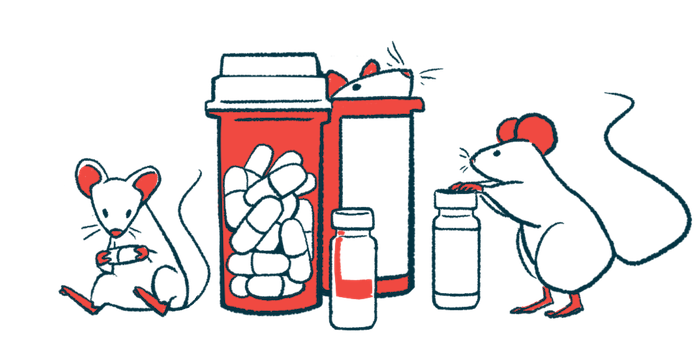DN-TNF Therapy Reduces DMD Muscle Damage, Spurs Growth
New treatment targets soluble TNF, reducing risk of side effects
Written by |

A new dominant-negative tumor necrosis factor (DN-TNF) treatment reduced muscle damage and promoted muscle regeneration in a mouse model of Duchenne muscular dystrophy (DMD), according to INmune Bio.
The research is part of a collaboration between INmune and Armando Villalta, PhD, a professor at the University California, Irvine School of Medicine.
“These data are important because this single drug appears to be decreasing muscle damage while promoting muscle regeneration,” Villalta said in a press release. “The combination of these key positive benefits leads us to believe this DN-TNF therapeutic has the potential to usher in a whole new drug class for the treatment of DMD as well as other neuromuscular diseases.”
DMD is caused by mutations that disrupt the production of dystrophin, a protein that acts like a “shock absorber” in muscle cells, helping to cushion them during the intensive process of muscle movements. Without functional dystrophin, muscle cells are vulnerable to damage from the wear and tear of movement.
Neutralization of soluble TNF without affecting transmembrane TNF signaling appears to be a uniquely effective therapeutic approach to managing muscle injury while also promoting muscle regeneration in DMD.
Inflammation plays an important role in muscle damage progression in DMD. Corticosteroids — a class of anti-inflammatory medicines that mimic the activity of the hormone cortisol — are a standard part of care.
“We intend to submit these important results for publication in the near term as we work toward completing an additional ongoing study evaluating the impact of this novel DN-TNF therapeutic on muscle fibrosis and cardiac function in the D2-mdx model of the disease,” Villalta said. “Approved DMD therapies aim to restore dystrophin expression or influence a single pathology of this complex disease, for example chronic inflammation. It is rare to see a single drug provide multiple benefits and even rarer to see muscle regeneration as a key outcome.”
Tumor necrosis factor, or TNF, is a signaling molecule (cytokine) that acts as a master coordinator of inflammation in the body. It has two forms: the soluble version, which floats freely through the blood and other fluids, and the transmembrane version, which is attached to the surface of cells.
The new DN-TNF treatment targets soluble TNF, but doesn’t affect the transmembrane form. This reduces the risk of side effects, according to INmune.
That the new biologic is “dominant-negative” basically means it forms inactive complexes with TNF’s own subunits, inhibiting its functions.
“Our DN-TNF biologic’s ability to selectively target soluble TNF provides a precision medicine approach to the treatment of DMD. Neutralization of soluble TNF without affecting transmembrane TNF signaling appears to be a uniquely effective therapeutic approach to managing muscle injury while also promoting muscle regeneration in DMD,” said RJ Tesi MD, CEO of INmune .
INmune has formed a subsidiary called DN02 to continue developing DMD-focused therapies.
“This program was initiated as a partnering program and we have assembled a team with expertise in DMD and rare diseases to explore opportunities to move this program into the clinic,” said David Moss, chief financial officer of INmune. “Our goal is to find a partner with expertise in DMD drug development to lead the clinical advancement of this novel therapeutic opportunity … while we know the DMD drug development landscape is very active, we believe our DN-TNF biologic represents a strong and differentiated new entrant into the space.”






